This is the most beautiful place I’ve ever been; the hottest place I’ve ever been; the craziest place I’ve ever been; and any other superlatives you can think of. I have just had beer delivered to my door one day and a piano delivered the next. Yet, I cannot get change for a 5 dollar-pound bill.
For the crazy part, I go to a legitimate store to buy a phone card, or fruit or anything, and the cashier always asks if I have correct change. Well of course I don’t. I can’t get any--anywhere. For a one hundred Egyptian Pound (LE) phone card for example, the guy says 122 LE (yep, sounds like fuzzy math from the people who invented algebra) so I give him my best change--125 LE. He walks out of the store, leaving it untended except for me, goes down the street, and eventually comes back with 3 LE, less than $1.00! I have been in the neighborhood market where my change would be 10 LE, and the cashier starts digging through his own wallet.*
And another thing, there really is no reliable mail system, but there is a Postal Museum on the tourist route. Another teacher told me, “That explains it, that’s where our mail is!” My street address in Cairo would mean absolutely nothing if you wrote it on an envelope. The thing is, Egyptian people are the most honest people I have ever seen in a big city. The Customs officials, however, know where the mail goes. No one orders anything from eBay, or any such luxury, because it is an accepted fact that customs agents will “inspect” every package.
Local people justify this shortcoming by saying, “Oh well, you can get anything you want in Cairo.” The truth is, you can get a lot of wonderful things, and you get nice substitutes for things that you need, but I am looking for a CD of a feminist, bluegrass band from Kentucky. . . I’ve got correct change.
As substitutes go, I have found what I need. Alka-Seltzer, my drug of choice for 'mummy tummy', as the locals call the queasiness that newcomers experience, is called Rani. It is bright orange, tastes like orange Kool-Aid mixed with children's aspirin, and it fizzes right up out of the glass. After the initial shock, it does the job.
Egyptian beer is very good. Wine is so-so, and smokers are in Paradise. There really is no such thing as a non-smoking section. People basically ignore the occasional “no smoking” sign, even in the way-upscale shopping mall. In fancy restaurants, waiters sometimes ask “smoking or non", but the best seats are reserved those who puff.
The delightful molasses tobaccos are enough to put me over to the other side. I had the sweetest apple shisha, and now I know why the caterpillar in Alice in Wonderland looked so content. It is not like the nervous habit of smoking cigarettes--it is very relaxing. Also, you don’t actually inhale. A $1.00 pipe will last through a soccer match or a lingering pot of tea with friends. Men shoo women away from the street shisha vendors, it is their territory, but many coffee shops and restaurants cater to women, with a constantly tended water pipe and free wi-fi connection.
The phone system I can barely talk about without blowing a circuit. This has been the only serious source of frustration since moving to Egypt. I am homesick. I miss my family. I am worried about my favorite auntie. I miss my friends. I miss my dog. And I can't make a #$%^& phone call. Land lines, as they call the useless hole in the wall, work like an old switchboard with Lily Tomlin at the controls. I received so many wrong-number calls at such odd hours that I unplugged it. When I do plug it in to use it, it is local only--the landlord "owns" your phone, and he decides whether or not you have long distance. Then, during a call, everything you say echoes back to you, an annoyance the other party hears as well.
Most of what happens in my day to day life in Cairo is exciting, puzzling, and sometimes funny. Despite my frustration with utilities, I do enjoy being here. I love my job. The school where I teach English, though American International in name and style, is fully Egyptian in reality. The employees operate on a hierarchy of who does what, and you do not cross those class-issue lines. I cannot, for example, walk up to the copy machine in the office and make a copy. I have to give it to the "blue lady" (the Egyptian women on staff wear sky-blue hospital-type scrubs and blue matching headscarves.) She will ask me in Arabic what I want done with this piece of paper. If she is not the right blue lady, she will take to another one, who asks me what I want done. I make some hand motions for photocopy and hold up a finger for 'one.' She will disappear into the back of the office and return with a copy. This never takes less than 15 minutes.
One day I gave my teaching assistant money and asked her to go get us both a bottle of water. (She is an extremely wealthy Egyptian college dropout) She told me that she does not go get water, but she will tell a blue lady to go get it.
My students are mostly affluent Egyptian children. They can all speak Arabic and English, and many converse in French equally well. Most have traveled on several continents, and lack for nothing material. Some of them, yes kids, have their own driver. I fussed at one of my ninth graders for not doing his essay. He insisted that it was finished but he had left it at home. I told him that every ninth grader I have ever taught said the same thing when they did not do their work. He said, with my permission to use his mobile phone, he would call his driver to bring it in. I wanted to call his bluff and say 'go ahead,' but I hated the thought of some underpaid servant having to stop whatever he was doing and drive an hour out to our school.
On the surface it appears that my students live the good life, and on the surface, they do. But I have been surprised to learn that many of my kids are desperately lonely. Some of their parents are jetsetters, for months on end, and they are raised by nannies and cooks. At school, they just devour our attention and seem to thrive on the smallest praise. I give them trinkets, freebies, that I brought from conferences in the states, and they treasure them, saying, "Thank you Miss."
They call all of us "Miss." It is a cultural courtesy, plus our names are hard for them to pronounce. (Never mind that I have learned how to say Amr Abdul Rheheem Al Sheik--You can imagine how long it takes to call attendance!)
Yesterday my sixth-grade science class sat around a table with me as we began the lesson. They are still very sweet little ones, not being exposed to much of the xxx media that our children have seen by 10 or 11 yrs old. (American movies and video games are here and up-to-date, but very censored) What they have experienced is awfulness of a different kind. For example, my dear little dimple-faced Mohamed told us that he would not be in class for the next few days because he had to go back to Lebanon to renew his passport. He said, "You should see, Miss. The bombs broke everything around us except my house."
So Aala pipes up, "Yes Miss, the U.S. gave bombs to Israel and then Israel bombed everybody around them and stole the land."
Mohamed added that one time his family was in the car in Lebanon, and a bomb fell so close that the car tipped up a bit.
"The driver said a curse word, Miss," he exclaimed.
Aazim chimed in, "I hate Jews." Which prompted them all to say the same.
I let them talk until they calmed down, then I said, "I have something very important to tell you. I personally know Jewish people who have only love in their heart," I placed my hand over my heart for emphasis, "and I also know Christian people, and Muslim people and Buddhist people, who only have love in their heart, and they want to have peace. So remember, there are good people everywhere you go in the world, who really want to have peace."
In this solemn moment I asked them, "So, what do you all think that we can do to help make peace in the world?"
Aazim raised his hand, "Put all the Jew-devils in hell, Miss."
So . . . how about that science lesson kids, . . .
*I have since learned that people do not really expect exact change. They just pay what they have with a little over, but not less. Also, saying "keep the change" is a way of establishing a good relationship with your neighborhood markets. You may need it someday. And when you do, they will kindly oblige.
Speaking of kindness, the other night I went to town to grocery shop. Getting into the taxi with several bags of groceries, I dropped my water bottle. Being graceful as I am, I stepped on the bottle and tripped until I landed on my knees behind the taxi, out in the street no less. When I turned to get up, at least four people were trying to help me up; the one who got my attention was an Egyptian woman in full galabeya, reaching out to me with one hand while cradling an infant in the other.
Once in the taxi I began to cry, not because I was hurt, but because I am so blessed. The driver handed me a tissue. Looking at me in the rearview mirror, he said, "Welcome to Egypt."
About Me

- Deborah George Kerwood
- Cairo, Egypt
- To celebrate my midlife crisis, I decided to see more of the world. The only way to afford this luxury on a teacher's salary is to teach. So, here I am - teaching in an international school in the most delightful place I could imagine in the world, Cairo, Egypt.
My Blog List
Blog Archive
Sunrise on the Dead Sea

Posted in Jerusalem
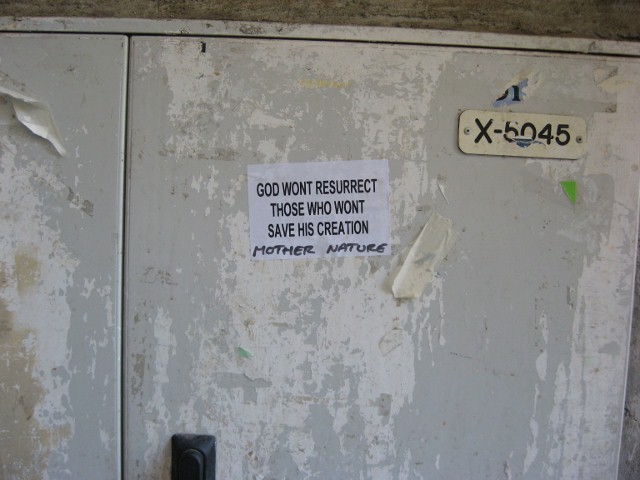
Full Moon (dec 23,2007) Over West Wall Jerusalem

Mass in The Cave
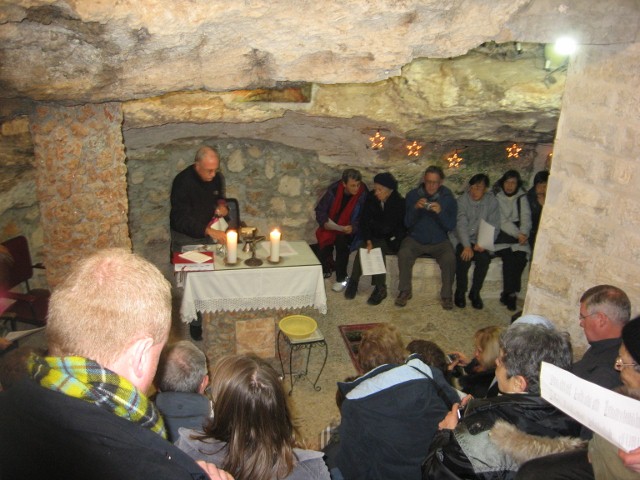
Woman at The Dome of the Rock

We Like Shisha
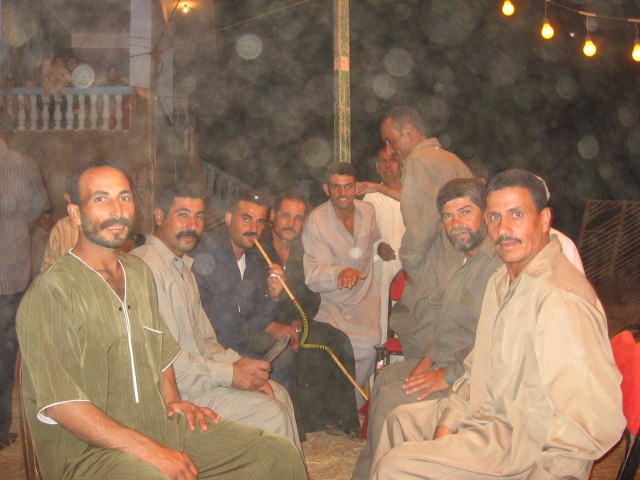.jpg)
Pigeons on My Plate - Yummy
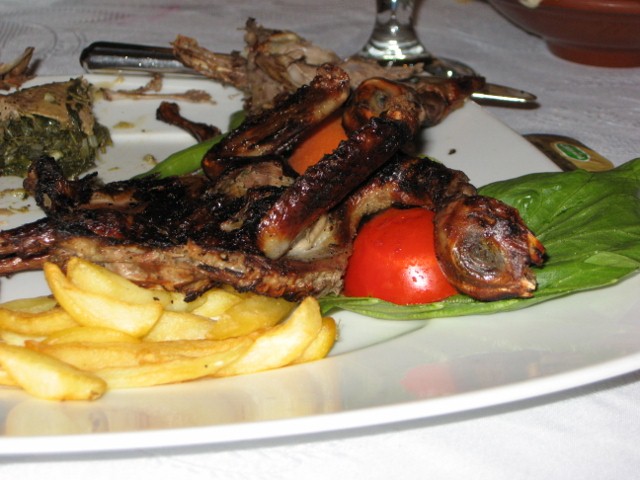.jpg)
Pigeons at Home
.jpg)
Pyramids at Giza
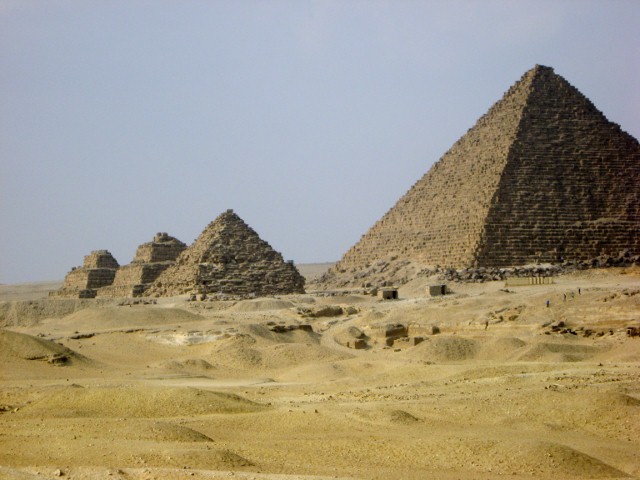.jpg)